The cheapest, freshest produce for each season
Fill up on the ripest fruits and veggies all year long.

Fruits and veggies are available all year, but you may notice the quantity, quality and prices ebb and flow throughout the seasons. Choosing fruits and veggies in season is a sure-fire way to enjoy the freshest produce at the cheapest prices. Before you stop at the grocery store or swing by the farmer’s market, check out what’s in this time of year.
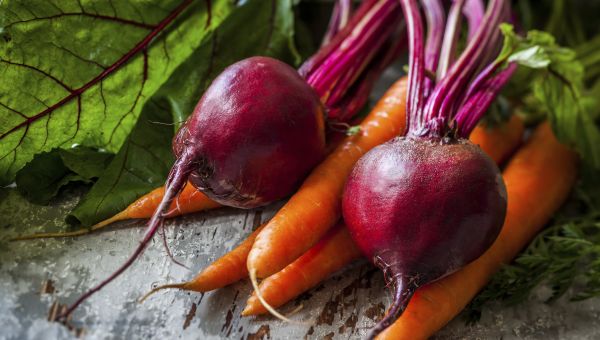
Winter: Vegetables
The winter crop is abundant with hearty veggies like cabbage, squash and yams. These fiber-rich and colorful vegetables are tasty and filling. Plus, fiber promotes regularity, aids in weight management and helps control cholesterol and diabetes.
What’s in:
- Brussels Sprouts
- Sweet Potatoes
- Carrots
- Onions
- Winter Squash
Chop your favorite winter veggies and roast them with chicken breast, vegetable stock—just 15 calories per cup—and your favorite spices for a delicious and satisfying meal. Or pick up an assortment of veggies and enjoy one of these belly-warming veggie soup recipes.
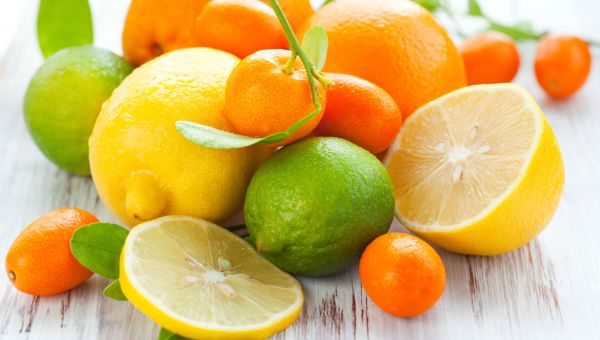
Winter: Fruits
This season’s fruit harvest is a mix of sweet and sour. Grab a piece of your favorite winter-bred fruit and enjoy as is, or play with these ingredients in the kitchen.
What’s in:
- Grapefruit
- Oranges
- Pineapple
- Pears
- Lemons
- Apples
Toss sliced apples and pears with kale for a seasonal salad with an extra crunch, a bit of sweetness and a dose of immune-boosting vitamin C; cream a banana into a cup of plain non-fat Greek yogurt for a guilt-free banana pudding.
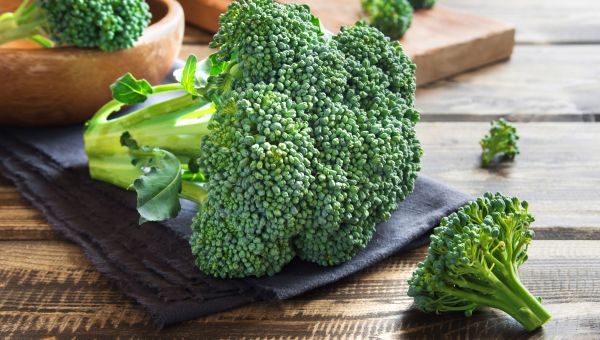
Spring: Vegetables
Enjoy the greenery of the season and load your plate with striking color.
What’s in:
- Asparagus
- Broccoli
- Mushrooms
- Radishes
- Carrots
- Peas
The spring soil is ideal for growing stir-fry veggies like broccoli and carrots, so pick up a serving of lean protein, like shrimp, chicken or tofu, seasonal veggies and make good use of your saute pan. Or give this zesty asparagus recipe a try.
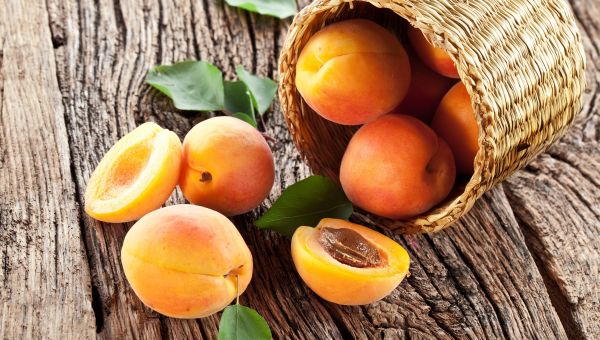
Spring: Fruits
Looking for a sweet treat without the guilt? Dip spring-ripened fruit slices into non-fat plain Greek yogurt or low-fat pudding.
What’s in:
- Pineapple
- Apricots
- Strawberries
Adding spring fruits to your diet is easy—try tossing some fresh berries into a spinach salad or slicing an apricot into a bowl of steel cut oats.
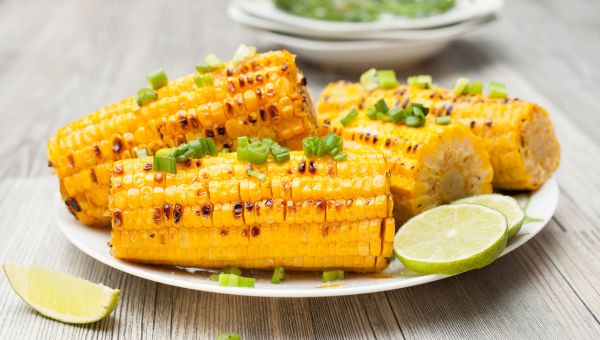
Summer: Vegetables
Hello, grilling season! Grab your skewers and head to the backyard for a delicious and nutritious summer meal.
What’s in:
- Corn
- Zucchini
- Cucumbers
- Green Beans
- Bell Peppers
- Eggplant
Grilling is a great way to cook without adding extra fat and calories. Thread cubes of summer veggies onto metal or wooden skewers, season with fresh or dried herbs and grill until tender. These kabobs pair especially well with ginger shrimp. Enjoy on the side, or on the same tasty skewer.
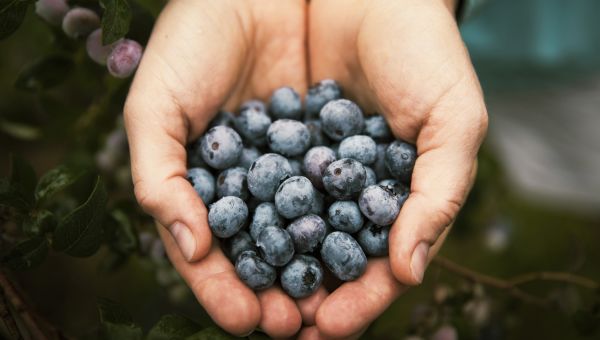
Summer: Fruits
The summer sun can be draining. Replenish energy levels and your body’s water supply with this season’s most hydrating fruits. Summer produce adds a punch of color, a boost of nutrients and makes for a sweet snack.
What’s in:
- Blueberries
- Peaches
- Plums
- Tomatoes
- Watermelon
- Cherries
A festive fruit salad is a staple at any summer outing, but choosing the fruits in season can make all the difference—and save you some cash. For the freshest mix, combine summer fruits like raspberries, strawberries and mango.
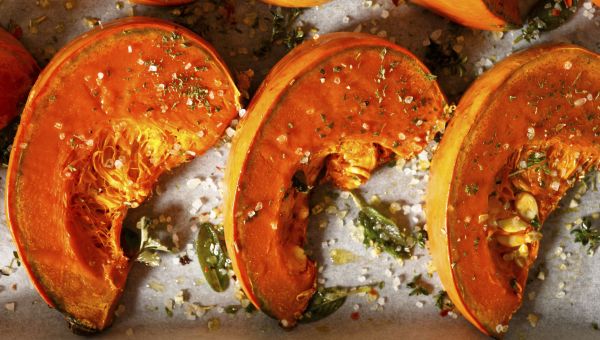
Fall: Vegetables
From deep purple to fiery orange and vivid green, fall’s freshest vegetables are at the peak of ripeness and the lowest price from August to November.
What’s in:
- Beets
- Cauliflower
- Green Beans
- Pumpkins
- Radishes
- Kale
Whip up a big pot of pumpkin soup to enjoy on a chilly fall evening or slice your favorite fall veggies into a colorful autumn salad to munch on your lunch break.
Want to slim down? Before you leave the office break room or step away from your kitchen table, grab your phone and track the size and quality of your meal. Food and beverage trackers are helpful weight loss tools, and some research suggests can double the number of pounds you drop. Give Sharecare a try, it's free to download, available for Android and iOS and makes tracking simple.
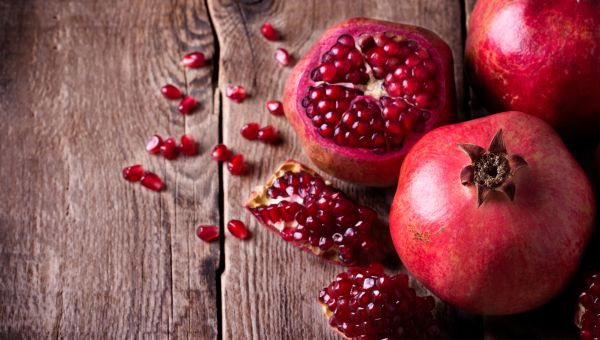
Fall: Fruits
Apples might be the quintessential fall fruit, but they aren’t the only ones.
What’s in:
- Apples
- Figs
- Mangos
- Pears
- Pomegranates
- Cranberries
Bake a perfect apple pie for your family’s holiday get together. Or make a simple and healthy dessert by slicing an apple in half, removing the core and baking with a sprinkle of cinnamon, nutmeg or brown sugar. Want something extra sweet? Combine all three!
More On


video
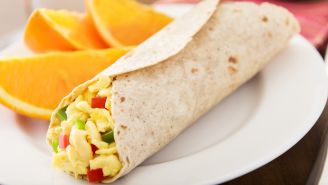
article
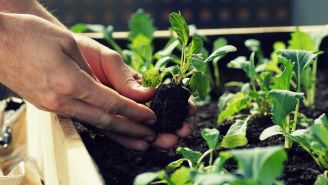
slideshow


video


video
